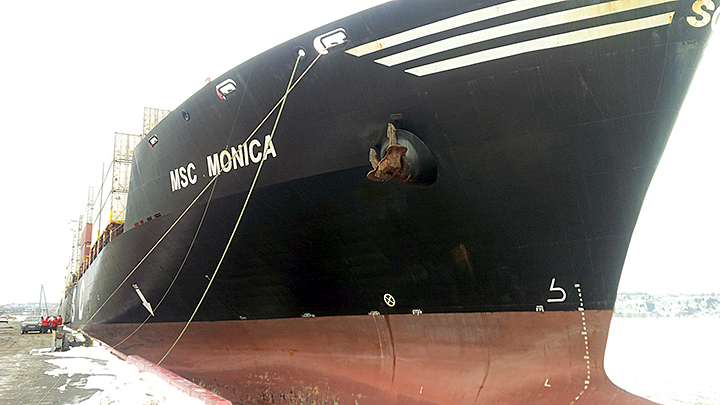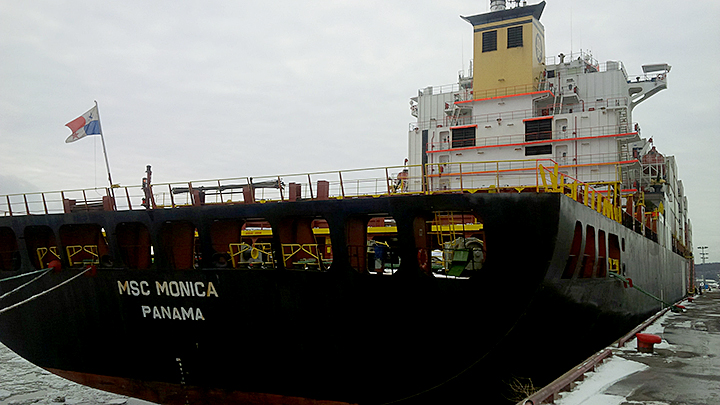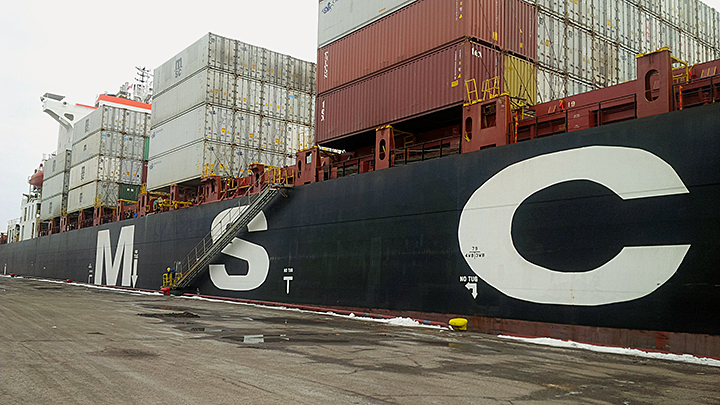Grounding
Container vessel MSC Monica
Deschaillons-sur-Saint-Laurent, Quebec
The occurrence
On 22 January 2016, the container vessel MSC MONICA ran aground 1 nautical mile NNE of Deschaillons-sur-Saint-Laurent, Quebec. The vessel was refloated the following day, with the assistance of three tugs, and escorted to Québec City, Quebec, to undergo the necessary inspections. No injuries or pollution were reported but the vessel sustained minor damage to the hull and the propeller sustained major damage.
Media materials
Deployment notice
TSB deploys a team to the grounding of a container ship near Deschaillons-sur-Saint-Laurent, Quebec
Québec, Quebec, 22 January 2016 — The Transportation Safety Board of Canada (TSB) is deploying a team of investigators to the grounding of the container ship MSC MONICA, near Deschaillons-sur-Saint-Laurent, Quebec. The TSB will gather information and assess the occurrence.
Investigation information
Download high-resolution photos from the TSB Flickr page.
Class of investigation
This is a class 3 investigation. These investigations analyze a small number of safety issues, and may result in recommendations. Class 3 investigations are generally completed within 450 days. For more information, see the Policy on Occurrence Classification.
TSB investigation process
There are 3 phases to a TSB investigation
- Field phase: a team of investigators examines the occurrence site and wreckage, interviews witnesses and collects pertinent information.
- Examination and analysis phase: the TSB reviews pertinent records, tests components of the wreckage in the lab, determines the sequence of events and identifies safety deficiencies. When safety deficiencies are suspected or confirmed, the TSB advises the appropriate authority without waiting until publication of the final report.
- Report phase: a confidential draft report is approved by the Board and sent to persons and corporations who are directly concerned by the report. They then have the opportunity to dispute or correct information they believe to be incorrect. The Board considers all representations before approving the final report, which is subsequently released to the public.
For more information, see our Investigation process page.
The TSB is an independent agency that investigates air, marine, pipeline, and rail transportation occurrences. Its sole aim is the advancement of transportation safety. It is not the function of the Board to assign fault or determine civil or criminal liability.


